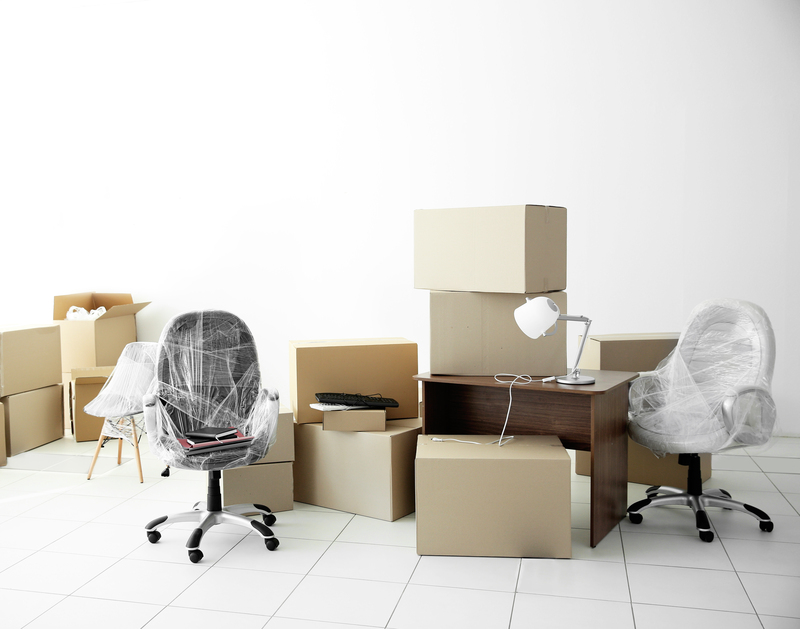Ensuring Your Freezer Stays in Top Shape While Unused
Freezers are essential appliances in any household, allowing us to preserve food and reduce waste. However, there may be times when your freezer sits unused, whether during an extended vacation, a move, or seasonal changes in consumption. Ensuring your freezer remains in top condition when not in use is crucial to maximize its lifespan and efficiency, and to avoid costly repairs or replacements. In this comprehensive article, we'll explore how to keep a freezer in good condition when it's not in use, preventive measures, cleaning tips, and expert advice to protect your investment.
Why Maintaining Your Unused Freezer Matters
Many people mistakenly think that if a freezer isn't running or being opened regularly, it requires little to no attention. This assumption can lead to unpleasant surprises such as unpleasant odors, mold growth, mechanical issues, or even pest infestations. Properly maintaining your freezer while it's unused helps to:
- Prevent mold and mildew growth
- Protect internal components from moisture damage
- Increase freezer longevity
- Avoid bad odors and stale smells
- Minimize energy usage if unplugged
- Ensure safe, easy reactivation when needed
Let's delve into the best practices for maintaining your freezer in optimal condition during periods of non-use.

Preparing Your Freezer for Non-Use
1. Thorough Cleaning
Cleaning your freezer before leaving it unused is the most vital step. Follow these steps for a spotless interior:
- Remove all food items (do not leave any perishables inside).
- Unplug the freezer to ensure safety.
- Allow it to defrost completely. If there's ice buildup, use towels to soak up melting water. Avoid sharp objects for chipping ice; instead, use warm water and patience.
- Wipe down all surfaces with a solution of water and mild detergent. For stubborn stains or odors, use a mix of baking soda and water.
- Don't forget to clean the door seals and hinges, as dirt here can cause air leaks later.
- Dry all surfaces - moisture encourages mold and foul smells.
2. Deodorizing Your Freezer
Even after cleaning, freezers can trap odors. To keep your freezer smelling fresh:
- Leave an open box of baking soda inside the clean, dry freezer.
- Activated charcoal or dry coffee grounds in a bowl are excellent odor neutralizers.
- Some recommend a paper towel soaked in vanilla extract or lemon for a pleasant aroma, especially if the freezer will remain unused for months.
3. Keeping the Door Ajar
Once your appliance is cleaned, dried, and deodorized, leave the freezer door slightly open. This crucial step helps to:
- Prevent any residual moisture from creating a stale, musty smell
- Discourage mold and mildew growth inside the appliance
- Let fresh air circulate to keep the interior environment dry
Use a soft object, like a rolled towel, to keep the door from closing completely but ensure it's secure so children or pets cannot trap themselves inside.
Should You Unplug or Leave Your Freezer Running?
This depends on the duration of non-use and your specific circumstances.
- Short-term unattended (days to a couple of weeks): You may leave the appliance plugged in, provided it contains some items and is at the correct temperature.
- Long-term unused freezers (weeks to several months): Unplugging is the best practice after thorough cleaning and drying.
- For a chest freezer in the garage or basement, unplugging helps save energy and preserve parts.
Always consult your appliance's manual for manufacturer recommendations.
Safety Tips When Unplugging Your Freezer
- Ensure the unit is completely defrosted to avoid water damage to floors.
- Disconnect from the electrical outlet securely.
- Leave the door ajar to prevent air stagnation.
- Label the appliance as unused if you live with others to avoid accidental use.
Location Matters: Storing Your Unused Freezer
Storing your freezer appropriately while unused is key to maintaining its functionality and appearance.
Indoor vs. Outdoor Storage
- Indoor storage (basements, utility rooms): Best option since it avoids weather extremes and rodent issues. Ensure the spot is dry and ventilated.
- Outdoor or garage storage: If indoors isn't possible, cover the appliance with a breathable fabric to shield it from dust while allowing airflow. Avoid plastic sheets, which trap moisture and cause rust.
Protecting Electrical and Mechanical Components
- Ensure the freezer is not stored directly on a cold, damp floor. Use wooden planks or a mat to prevent rust on the underside.
- Keep away from windows and direct sunlight which can warp plastic parts and fade exteriors.
- Check periodically for signs of rodent activity, as pests can damage wires and insulation.
Preventive Maintenance for Freezers Not in Use
Taking a few minutes each month while your freezer is unused can prevent long-term problems:
- Air it out periodically: Open the door fully once a month to allow fresh air exchange.
- Check for moisture: Ensure there's no new condensation, mold, or odd smells. Wipe down dry if needed.
- Inspect seals and hinges: Make sure gaskets stay soft and the door is correctly aligned. Lubricate hinges if necessary.
- Dust external coils: If accessible, gently dust condenser coils to prevent buildup and pest attraction.
- Check power cord: Even when unused, inspect for fraying or pest-related damage.
How to Get Your Freezer Ready for Use Again
After your freezer stands idle for a period, follow these steps to reactivate and prepare it for use:
- Inspect the interior for signs of pests, mildew, or damage. Clean again if necessary.
- Wipe gasket seals to ensure a tight fit and prevent cold air leaks.
- Reconnect the freezer to power, let it run empty for a few hours, and check temperature drops to the safe freezing range.
- Insert an odor absorber, such as fresh baking soda, upon loading new items.
- Stock food only after confirming stable, safe temperatures (typically at or below 0?F/-18?C).
Common Mistakes to Avoid When Storing an Unused Freezer
- Leaving food inside: Any forgotten food can spoil, cause odors, or attract pests.
- Plugging the drain hole: If your unit has a drain, keep it clear to allow residual water to exit.
- Sealing the door tight: Trap humidity, causing mold; always prop the door open.
- Neglecting regular checks: Even idle, a freezer can be affected by rodents, dust, or humidity.
- Storing heavy items on top: Can damage lids, hinges, or controls.
Frequently Asked Questions
How often should I check my unused freezer?
Ideally, inspect your idle freezer once a month. Check for moisture, insect or rodent activity, and ensure the door remains propped open.
Can I cover my freezer with plastic wrap?
Plastic wrap or sheeting isn't recommended because it traps moisture, promoting rust and mold. Use a breathable cover if you need to protect the exterior from dust.
What if I notice mold in my unused freezer?
Promptly clean the appliance with a mix of water, baking soda, and a splash of vinegar. Rinse thoroughly and dry. Leave the door open longer to air it out. Prevent recurrence by ensuring all surfaces are completely dry.
Is it okay to store my unused freezer outside in winter?
Freezers are designed for indoor temperatures. Prolonged cold and exposure can damage components, void warranties, and encourage condensation when temperatures warm. Only store outside if absolutely necessary, and provide weather protection and ventilation.
Can leaving a freezer unused save energy?
Unplugging your freezer during long-term non-use does save energy and wear on mechanical parts. But keep in mind the steps above to dodge any unpleasant surprises when you reactivate it.

Final Tips for Ensuring Your Freezer Stays in Top Shape While Unused
- Always defrost and dry the interior thoroughly before storing unused.
- Leave doors slightly open to counter mustiness and mold.
- Do prevent pests and rodents by checking seals, storing off the ground, and inspecting regularly.
- When ready for use, clean and cool it before introducing new food items.
Properly caring for your freezer during periods of inactivity isn't hard -- but it does require a little effort and foresight. By following the steps above, you can ensure your unused freezer remains in excellent condition, ready to preserve food efficiently for years to come.
Don't wait until a problem develops. Prepare your freezer for inactivity, make periodic checks, and rest assured that your investment will stay in top shape -- even during extended downtime.
Additional Resources
- ENERGY STAR - Freezer Maintenance
- Consumer Reports - Freezer Maintenance Tips
- Family Handyman - How to Clean a Freezer
By taking these proactive steps, your freezer will always be ready when you need it!



